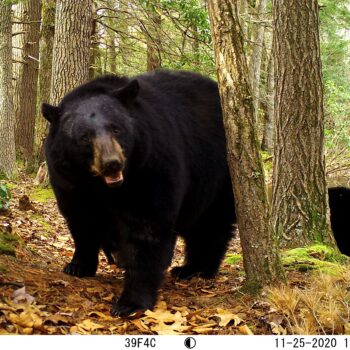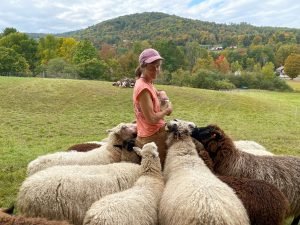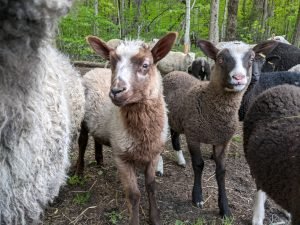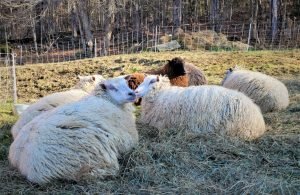The post Weekly Suggested Events for February 12-18, 2022 appeared first on Hilltown Families.
Hiring: Field Crew – Next Barn Over
Field Crew
40-60 hours per week, May – November
Next Barn Over is a 50-acre, organic vegetable farm in Hadley, MA. We grow forty crops for our 800-member CSA and several local wholesale customers. Field crew is involved in all aspects of crop production including seeding in the greenhouse, transplanting, weeding, and harvesting. Pay is competitive and commensurate with experience.
Qualifications:
- Passionate about sustainable agriculture with a special interest in commercial organic vegetable production
- Excited to learn from an experienced crew
- A team player that can also work independently
- Strong and efficiency-minded work ethic
- Good attention to detail, able to balance speed with high quality standards
- Positive attitude
- Able to repeatedly lift 50+ pound items
- Spanish language is a plus
Responsibilities:
- Greenhouse work: including seeding, transplanting, filling seedling trays with soil, moving seedling trays around and out of the greenhouse
- Field work: including transplanting by machine and hand, hoeing, hand weeding, managing row cover, trellising, mulching
- Harvest work: is mostly done by hand for the many vegetable crops we grow. It is fast-paced and requires a lot of heavy lifting and the ability to balance speed with meticulous counting and quality control
- Post-harvest work: including washing, sorting, and packing
- Operation of farm vehicles
- Clean up of farm waste and organization of materials
- Some additional tasks such as: light carpentry, painting, building and equipment maintenance.
Applicants please reach out to: info@nextbarnover.com
Hiring: Washroom Assistant – Next Barn Over
Washroom Assistant:
30-40 hours per week, June – October
Next Barn Over is a 50-acre, organic vegetable farm in Hadley, MA. We grow forty crops for our 800-member CSA, farmers market, and several local wholesale customers. Washroom assistants will work alongside our Washroom Manager and crew, in all post-harvest activities; including washing, sorting, packing, and delivery. Competitive hourly pay, commensurate with experience.
Qualifications:
- Passionate about sustainable agriculture with an interest in commercial organic vegetable production.
- A strong and efficiency-minded work ethic.
- Ability to work in a fast-paced, physically demanding, and busy environment.
- A positive attitude
- A desire to work closely with a team and to build strong communication and supportive atmosphere amongst the team.
- Good attention to detail.
- Must be able to repeatedly lift 50+ pound items.
Responsibilities:
- Participate in the washing, processing, and packing of all farm produce
- Deliveries of farm produce to local drop off sites.
- Participate in quality control, product consistency, cleanliness, and food safety in all post-harvest activities
- Participate in daily cleaning and sanitizing of harvest and packing equipment and work areas.
- Washroom equipment operation including pallet jack, rinse conveyor, and brush and barrel washers.
Please send inquiries to Ray at: info@nextbarnover.com
Capturing Creatures: Wildlife Camera and Illustration Webinar

Feb 17th, 2022 – 6:00 pm – 8:00 pm
We are excited to announce that last year’s popular Wildlife Camera and Illustration Webinar is back! Join us on Thursday, February 17th from 6 to 8 pm for a workshop…
Under the Pines: A Celebration of The Black Experience: Walking Tour, Film Screening, and Discussion | Florence | February 12
Under the Pines: A Celebration of The Black Experience: Walking Tour, Film Screening, and Discussion
 Saturday, February 12, 2-5pm
Saturday, February 12, 2-5pm
Hosted by Bombyx Center for Arts & Equity
Register at: bombyx.live/events/under-the-pines
2PM: David Ruggles Center Walking
Tour
“But Don’t Believe Them”
The Black History Month series is sponsored by Ruthie Oland Real Estate, Davis Financial, Living in the Light of Rare Diseases, and is co-presented with the David Ruggles Center.
COVID PROTOCOL
We are committed to keeping everyone safe and feeling comfortable. We will be following the latest local, state, and CDC guidelines. All attendees will be required to show proof of vaccination or negative covid test result within 72 hours of the talk and wear a face covering for the duration of the event. Please review our current covid policies before you arrive.
Valley Bounty: Walking Cloud Farm
Supporting local farms might involve choosing to eat local, but what about dressing local? After all, farms grow more than food.
Choosing locally grown fiber and fabrics benefits local farmers, business owners, and landscapes, and can achieve many of the same social and environmental benefits as choosing local food. Yet the support and rhetoric behind a movement for local fiber isn’t as well established – yet. Marti Ferguson of Walking Cloud Farm in Buckland has thoughts on how that can change.
Ferguson was born in New England, spending several years in Minnesota before returning to western Massachusetts. After a career in the medical world alongside other farming projects, she and her husband bought 9 acres in Buckland, and she welcomed her first sheep to the land in 2016. “I wanted to do something entirely my own,” she says, “where I could call the shots.”

Marti Ferguson of Walking Cloud Farm with some of her purebred Finnsheep
Sheep are the heartbeat of the farm and co-stewards of Ferguson’s rolling hills. “I’m running a flock of purebred Finnsheep,” she explains, “a dual-purpose breed used for meat and fiber. Right now I have 22 animals, but come lambing season we might have more than 50.”
Ferguson grazes the flock on the land around their home and at a second parcel nearby. In both locations, she and the sheep are rebuilding the land’s fertility through a strategy called rotational grazing. Constraining their access to small sections of pasture at a time encourages the sheep to mow down everything rather than being picky. Over time, this encourages quick-growing grasses that sheep like best to take over, fertilized by regular additions of manure.
“It’s like magic,” Ferguson says. “When livestock work the land like this, the land improves and adapts for the livestock. Done right it’s such a beautiful relationship. My sheep aren’t pets, but they’re also not just products. We’re collaborators.”
Ferguson is motivated by the puzzle of making it all work – balancing the needs of her flock and land and juggling the many tasks of being a small farm owner. “There’s lots of challenges,” she says. “They’re really interesting to learn about and test – it’s humbling and exciting at the same time.”
Moving back to western Massachusetts, Ferguson was pleasantly surprised to find a welcoming community of fiber farmers and enthusiasts. “If you scratch the surface, every single hilltown has a couple of fiber groups, and people came out of the woodwork offering support,” she says. “One of the first things I did was take an all-day workshop with Jill and Jim Horton-Lyons at Winterberry Farm in Colrain about all things sheep, and they’ve been mentors and friends since.”
 Ferguson also points out the unique number of resources available locally to animal and fiber farms. “The Mass Sheep and Woolcraft Fair happens every year just 20 minutes away in Cummington,” she says. “We have Community Involved in Sustaining Agriculture (CISA) promoting local farms. We have a fantastic source for farming supplies with the Greenfield Farmers Cooperative Exchange. And many sheep farmers across the country can’t get a large animal vet, but we have one right here in Buckland.”
Ferguson also points out the unique number of resources available locally to animal and fiber farms. “The Mass Sheep and Woolcraft Fair happens every year just 20 minutes away in Cummington,” she says. “We have Community Involved in Sustaining Agriculture (CISA) promoting local farms. We have a fantastic source for farming supplies with the Greenfield Farmers Cooperative Exchange. And many sheep farmers across the country can’t get a large animal vet, but we have one right here in Buckland.”
It may seem like the foundation to produce more fiber and textiles locally is set. But still, something is missing. “There’s this wonderful web of informal connections,” says Ferguson, “but it’s not doing the heavy lifting to build the public awareness and local infrastructure that could support a bigger local fiber economy.”
On the infrastructure side, “farmers like me just need affordable local places to clean and process raw wool,” she says. “So much wool gets composted because there’s no time or money to send it far away for that.”
Meanwhile, awareness of the global textile industry’s impacts and the benefits of local alternatives pales in comparison to other things we consume, like food. “We get dressed every day just like we eat every day,” Ferguson reminds. “But we’re very unthinking about those choices.”
Today, “so much of our fabric is made with fossil fuel-based synthetic fibers and harsh chemicals, and end up shedding microplastics,” says Ferguson. “Then there’s social justice implications – who is making all these things, where, in what conditions, and for what pay?”
The global food and fiber economies are shaped by wildly different factors, so any re-localization would look different for each. But for building awareness about local fiber, Ferguson looks to the local food movement as a model. “There’s a great deal of support for the local food economy out here,” she says. “We need to have local fiber recognized in the same way.”
Two groups already working on this are CISA – which promotes all local farm products, and recently held a networking event specifically for local fiber farmers and processors – and Western Mass Fibershed.
“Fibershed is a national organization with many local chapters,” explains Ferguson. “Their focus is to raise awareness among everyone and connect producers – whether it’s fiber farmers, weavers, designers – to find opportunities to grow this economy.”
And while working towards change, local farmers still need to earn enough to keep the lights on. “My fleeces – I’m going to keep selling them mostly to artists and hand-spinners,” she says, “because that’s where the premium is.”

Ferguson acknowledges that all these issues are complex. “I can’t fault anyone for not having the time to learn about them,” she says. “Plus, there are real economic barriers to affording local fiber, and the current system is convenient.”
Walking Cloud Farm sells their fiber products straight off the farm, including fleeces, washed locks, roving (straightened coils often used for spinning), and now yarn. They also sell sheep for pets or breeding stock, sheepskin pelts, cuts of lamb, and eggs. Ferguson also plans to be a vendor at the Massachusetts Sheep and Woolcraft Fair, scheduled for Memorial Day weekend at the Cummington Fairgrounds.
For those who want to help the local fiber economy grow, supporting groups like those mentioned above is one tactic. Another, if affordable, is to buy things made with local fiber. That isn’t just an investment in quality clothing and fabric, says Ferguson. Supporting these local farms now is an investment in the grander vision of local fiber too.
Jacob Nelson is communications coordinator for Community Involved in Sustaining Agriculture (CISA). To learn more about local fiber farms and artisans near you, visit buylocalfood.org/find-it-locally.
Easthampton WinterFest | February 12
Easthampton WinterFest
 Saturday, February 12, 9am-10pm
Saturday, February 12, 9am-10pm
Hosted by Nashawannuck Pond
Online and in-person with Covid-19 safety protocols
https://www.nashawannuckpond.org/winterfest.html
10 Must-Visit Restaurants in Northampton, Mass.
10 Must-Visit Restaurants in Northampton, Mass.
Boston Magazine rated the top 10 restaurants to check out in Northampton. Check out the article to learn where they picked: bostonmagazine.com/restaurants. Where’s your favorite place to eat in Northampton?
NEADS looking for volunteer puppy raisers for the weekend to take dogs from prisons, where they are trained during the week
NEADS looking for volunteer puppy raisers for the weekend to take dogs from prisons, where they are trained during the week
“NEADS, a nonprofit that trains service dogs, is looking for volunteer weekend puppy raisers to take dogs out of prisons, where they live and are trained by incarcerated individuals during the week.
Once trained, the dogs will help those who are deaf, have physically disabilities, children who have autism or veterans who have PTSD.” Check out the MassLive.com article to learn about how you can get involved.
Adult Wildlife Tracking Workshop
![]()
Feb 12th, 2022 – 1:00 pm – 2:30 pm
Fare-Thee-Well Wholeness Center
153 Pond Brook Road
Huntington
Have you ever seen animal tracks cutting their way through a snowy forest and wondered who made them? Would you like to enliven your experiences in the forest by sharpening…
